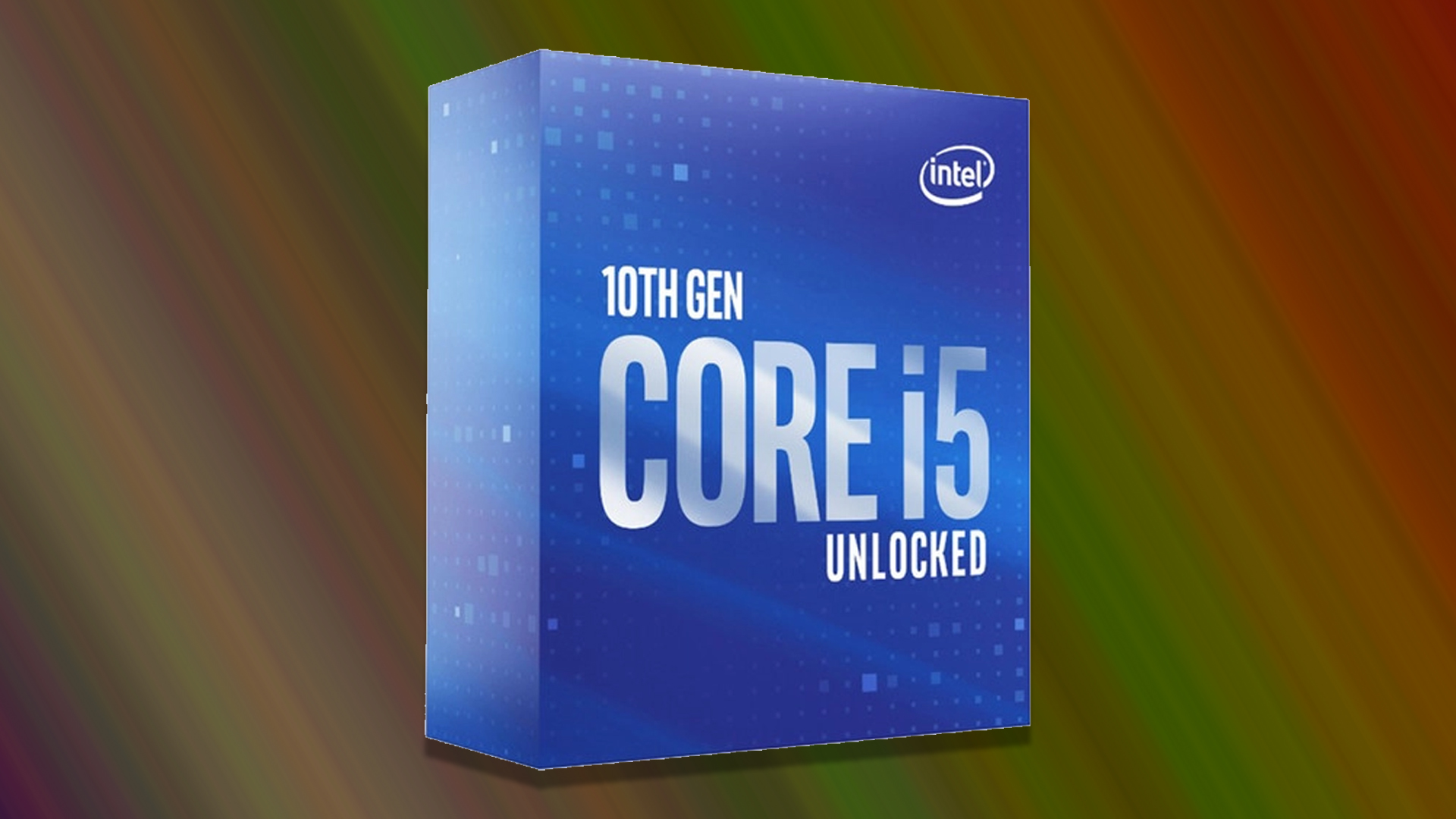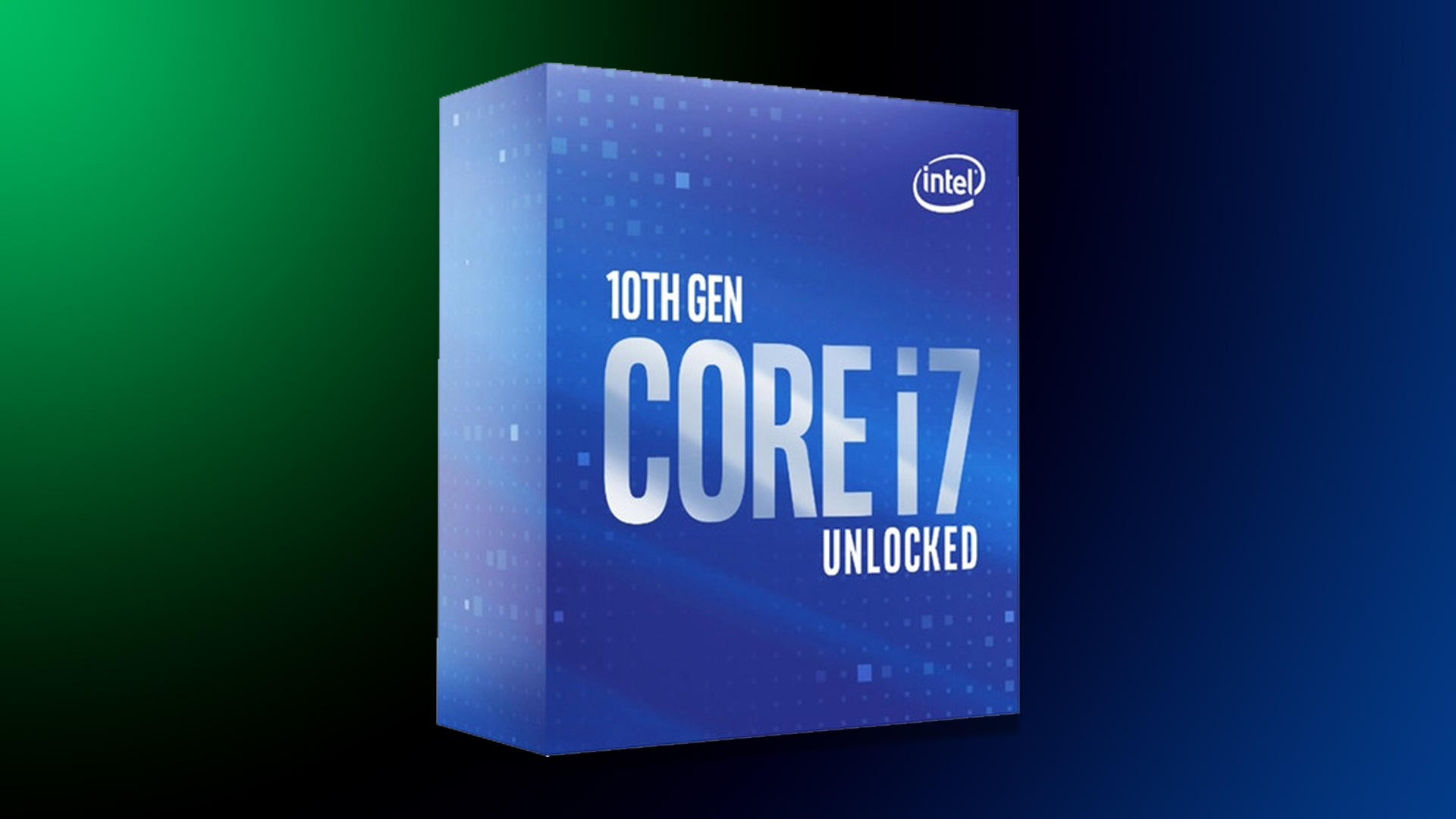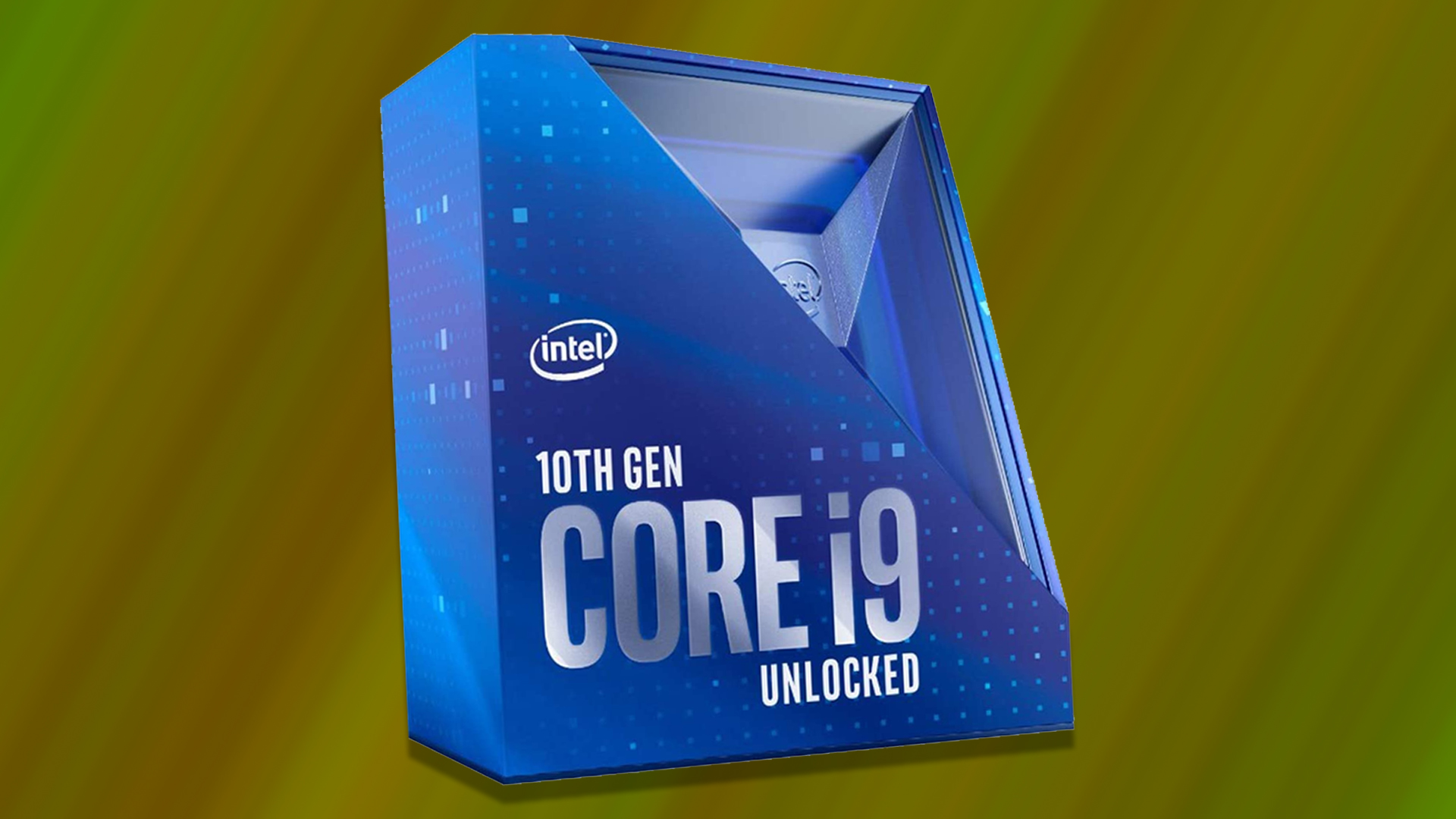Intel CPU deals: 10th Gen Core Processors see Huge Price cuts
On the run up to Rocket Lake, save big on Intel’s Comet Lake CPUs
As Intel begins to take pre-orders on its 11th gen Rocket Lake CPUs, the company is building on its recent efforts to cut prices on its 10th generation processors amid Ryzen shortages.
Now, the deals have gotten even more tempting across multiple retailers. So, if you’re shopping for a CPU deal and don’t need the latest, best CPUs, these are great offers to snap up.
Intel Core i5-10600K

Was $319, now starting from $189 across Micro Center | Best Buy | Newegg | Amazon
We’re big fans of this chip, handing it our Editor’s Choice award in our Intel Core i5-10600K review.
With a base clock of 4.1GHz and a boost of 4.8GHz that offers plenty of performance for those who just want to plug-in and go, with plenty of overclocking headroom making this as powerful as processors hundreds of dollars more expensive, this is the budget champ with real bang for buck. Plus, to get an extra $15 off the price at Newegg, use the code 39PCMDNS36D.
Intel Core i7-10700K

Was $549, now starting from $249 across Micro Center | Amazon | Newegg
This is Intel Core i9 gaming performance at an i7 price, as you can read about in our four-star Intel Core i7-10700K review.
Ranking highly amongst far higher-priced processors in our 3DMark and and various game frame rate tests, this is a good go-to for anyone who wants great gaming performance without the big price tag.
Intel Core i9-10900K

Was $699, now starting from $399 across Micro Center | Amazon | Newegg
This ten-core 20-thread beast ranks high as one of the fastest gaming processors on the market, which we gave a decent rating in our Intel Core i9-10900 review. All of this comes at a seriously good price.
Need to pick up other essentials too? We work hard to find the best CPU coolers and best motherboards. Plus, while the above listings are just three of the best, there are many more 10th generation CPU deals that you can find just below on our live feed — updated every 15 minutes.
Get Tom's Hardware's best news and in-depth reviews, straight to your inbox.

Jason is a deals writer at Tom's Hardware — bringing a decade of tech and gaming journalism to the role. He specializes in making sure you never pay more than you should for PC components and tech! He has previously written for other publications like Kotaku, Stuff and BBC Science Focus and in his spare time, you'll find him looking for good dogs to pet or eating pizza in his home town of Nottingham, UK.
-
thGe17 Not really. This simply results from the fact that there exists a competitor in the market. If history would have been different, this could also be VIA or even maybe Cyrix? :-DReply
AMD is as selfish and profit-oriented as Intel is. Their strategy is to gain a bigger market share and make more money, not to make some consumers happy. You, as a consumer, can currently benefit from the current market composition, and it would be even more beneficial if there would be a third competitor in the market. (Simple market mechanics.) -
punkncat All this article did was solidify my opinion of how lucky I am to be in driving distance to a Micro Center. On very rare occasion you will see one of the other retailers match a price, but then if you add the $20 off compatible motherboard savings it's a total no brainer.Reply -
TerryLaze ReplyAs Intel begins to take pre-orders on its 11th gen Rocket Lake CPUs
What pre-orders...begins? Some retailers in Europe sold them a month ago which means that intel has been shipping them out since at least back then so "pre"-orders if you can call them that have been going on for a while now.
the company is building on its recent efforts to cut prices on its 10th generation processors amid Ryzen shortages.
What is that even supposed to mean?
Intel had recent efforts to cut prices?
Why would they cut prices during a shortage?
If AMD can't sell any more CPUs anyway because of the shortages then how is intel targeting them? -
Phaaze88 Reply
Before Ryzen, Intel had no competition from AMD for years, and they purposefully stagnated the market as a result of that.thGe17 said:Not really. This simply results from the fact that there exists a competitor in the market. If history would have been different, this could also be VIA or even maybe Cyrix? :-D
AMD is as selfish and profit-oriented as Intel is. Their strategy is to gain a bigger market share and make more money, not to make some consumers happy. You, as a consumer, can currently benefit from the current market composition, and it would be even more beneficial if there would be a third competitor in the market. (Simple market mechanics.)
Those Piledriver/Bulldozer cpus were not a worthwhile competitor for Intel.
Though it's not like AMD or any other company wouldn't do the same given the chance. -
Roland Of Gilead ReplyPhaaze88 said:Before Ryzen, Intel had no competition from AMD for years, and they purposefully stagnated the market as a result of that.
Those Piledriver/Bulldozer cpus were not a worthwhile competitor for Intel.
Though it's not like AMD or any other company wouldn't do the same given the chance.
Bang on @Phaaze88
Although AMD 'existed as a competitor', they had nothing to bring to the table back then. Tables have turned dramatically in the last 3 years.
For those who don't remember the Intel 5% increase in IPC per new Gen for maybe 4 generations, the harsh facts are that AMD, whilst beholden to shareholders, like Intel are, they offer so much more as evident by their current Ryzen lineup, and the generally massive IPC gains from gen to gen. Not to mention still offering amazing value, with more cores/threads at similar price points. Oh, of course, they did also take the performance lead from Intel at the same time. There's no doubting these price reductions are the result of AMD's Ryzen rollout. -
thGe17 ReplyPhaaze88 said:Before Ryzen, Intel had no competition from AMD for years, and they purposefully stagnated the market as a result of that.
Those Piledriver/Bulldozer cpus were not a worthwhile competitor for Intel.
Though it's not like AMD or any other company wouldn't do the same given the chance.
So whats your point? Because the most likely one has already been noted by myself: A market needs competition ... ;-)
Additionally the "purposefully stagnated" is nothing more than a speculation. Maybe the consumer market needed not much more CPU power at that time and the console generation already limited CPU performace to 3, up to 4 high speed PC-CPU-cores at best.
For example Intel sold Core X 6-core CPUs already in 2011 and the first real, full-blown 8-core CPU in 2014 (long before Zen/Ryzen), but obvioulsy the market interest in these products was very small.
And then in 2017 Zen appeared, with 8 cores and a relatively low price, but not because AMD wanted to be nice to poor gamers. The market simply forced them to follow this strategy, because, Zen (at that time) could not fully compete against Intels Sky/Kaby Lake and they needed a lower price to generate certain amount of sales. Again, simple market mechanics, often misinterpreted, particulary by fans, but that's another story.
And additionally it was no accident, that AMD had chosen the consumer market *) to be the initial driver for their growth. It was a simple business calculation, because with regards to OEMs or the datacenter AMD wouldn't have had a chance to get back on its feet again.
*) And therefore gamers, because simple office users had (in most cases) no real need for a high core count at this time. -
Co BIY I think much of the credit needs to go to TSMC who drove the production process past what Intel was able to maintain. All their customers benefited from that but they are also going to be able to take a large share of the profits.Reply
I'm not sure the long term outlook for the consumer market is great though because of the concentration of production in only a few companies , the struggles of even these to progress at the high end, and the competition with corporate customers . -
Why_Me Reply
During this time of global pandemic one cpu manufacture has been lowering their prices for months now while the other manufacture has been raising their prices.Phaaze88 said:Thanks to AMD, as this wouldn't have happened otherwise... -
Phaaze88 Reply
It's their 'privilege' for becoming top dawg.Why_Me said:During this time of global pandemic one cpu manufacture has been lowering their prices for months now while the other manufacture has been raising their prices.
Intel did it for so long with their Core i cpus... AMD does it for a few months, and people got upset... really?
Why Intel is doing so many price drops when they were so reluctant to do them before, tells me something is up.
Do they have inventory that's not really moving as fast as they'd like? Meanwhile, AMD+TSMC is struggling to do the same. I'd bet Intel wished they could also be struggling to keep their chips in stock.
I'm looking forward to see what Alder Lake can do, but right now:
Ryzen 5000 V Comet/Rocket Lake: You want the best, you pay a premium for it. Hasn't it always been this way? Can't acquire the best, due to supply constraints? The runner up isn't bad product at all - if you can get that, get it.
HEDT: It looks like Intel gave up here. Threadripper/Epyc beat the pants off X-series and Xeon, but it's been slow going for AMD here, as some of the intended targets for these chips are reluctant to adopt to a completely different platform.
Underdog. The roles have reversed - at least for now.
Nvidia chose their price when they were uncontested at the high end, and few seemed to have bat an eye at that.
1500USD 3090s - Nvidia can spin it however they want, but those are Titans - hardly anyone complained, and bought the cards.
The 2080Ti that had an MSRP of 999USD, but almost no one started selling at that price, except for EVGA, who lagged behind, but would then follow suit like everyone else and sell for 1199+. No backlash at the 200$ price jump...
Am I actually missing something?